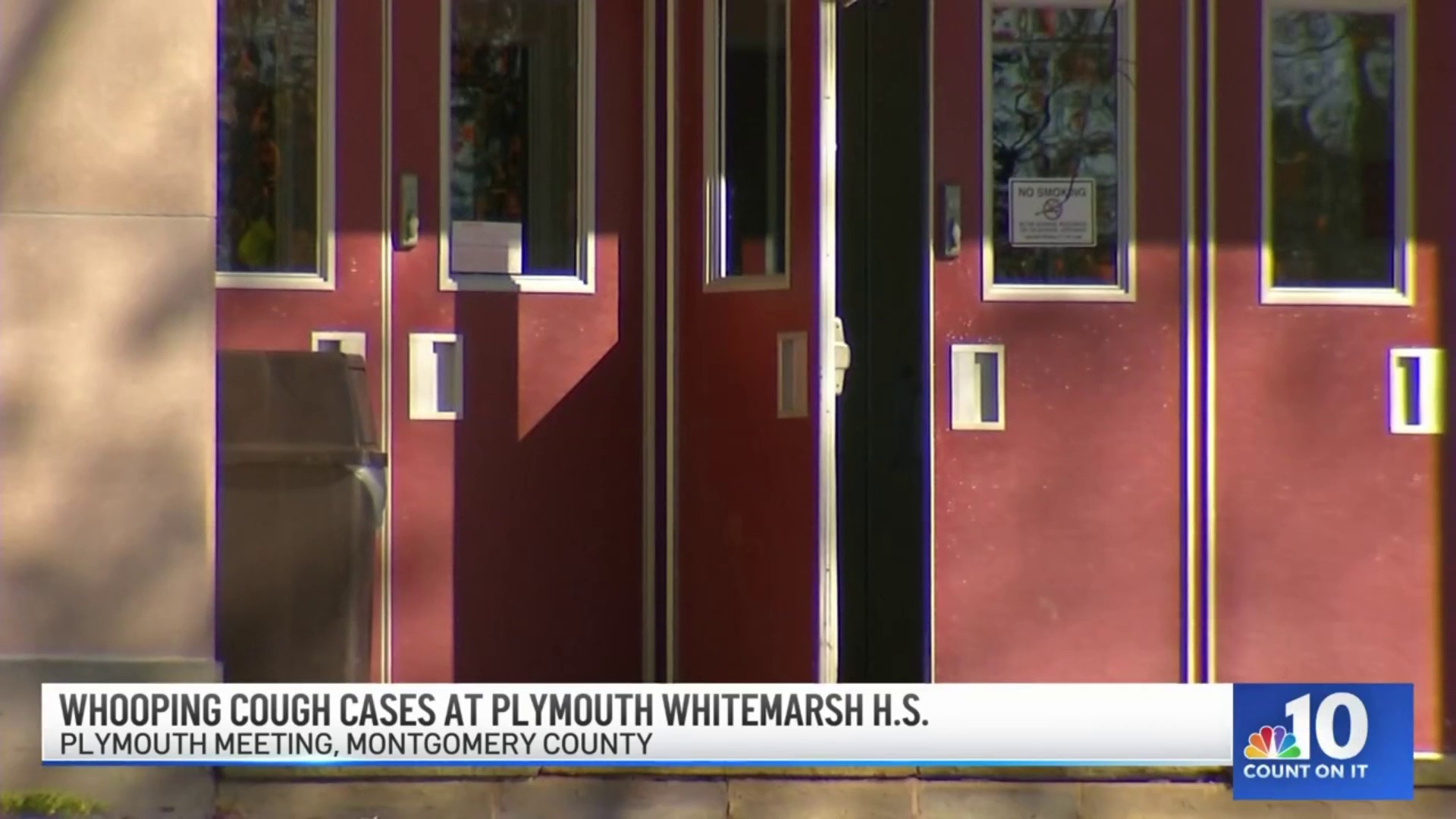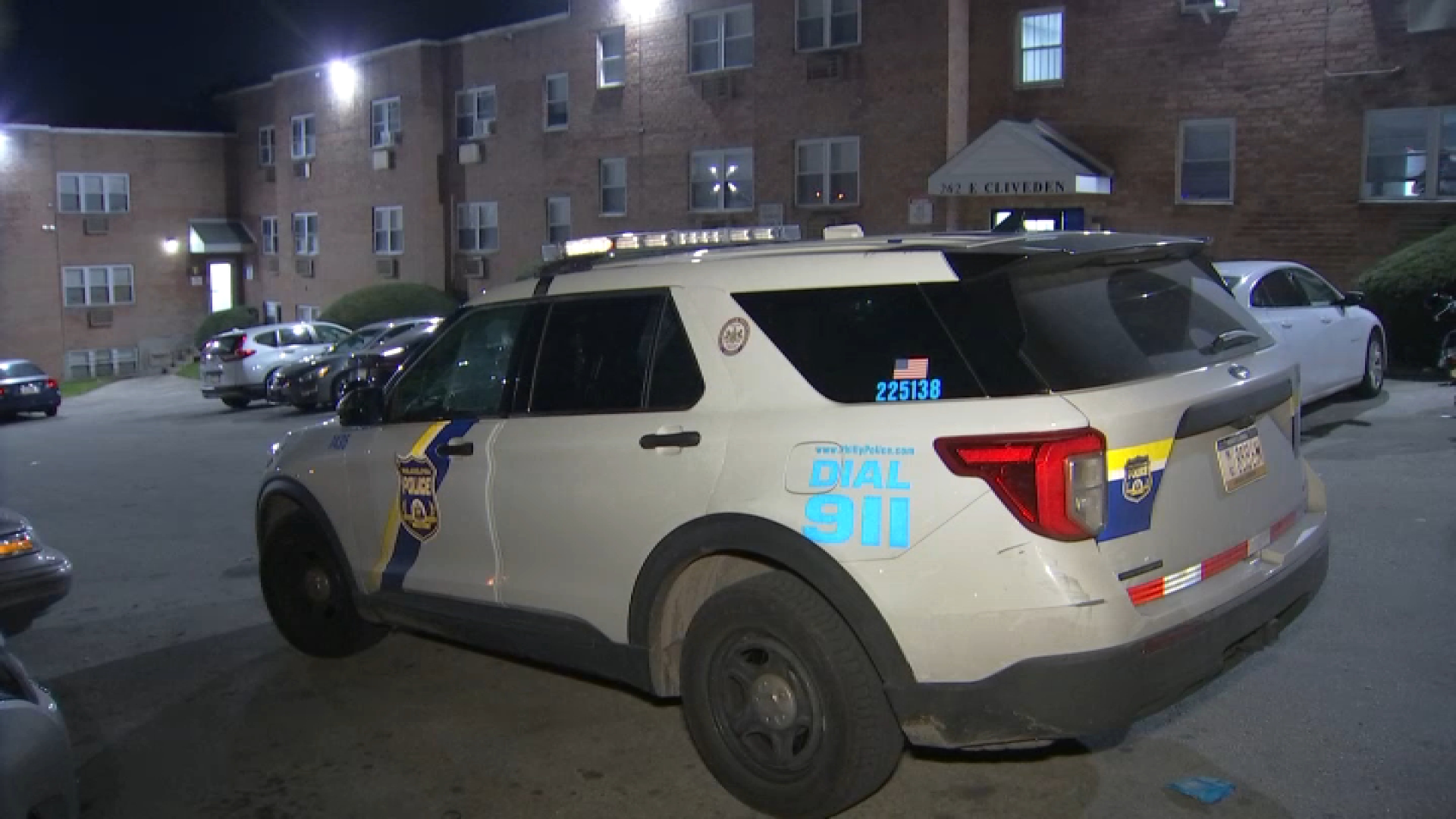If you thought you would die behind bars, what would it be like to suddenly be sprung from prison? One Philadelphia man has found surprises and success over the last two years since his life sentence was commuted.
Tyrone Werts is an ex-con to whom many people point as proof that someone who was sent to prison can come out and use his experiences to become an asset to the city where he lives.
To see Werts on the street now, you would never guess he spent 36 years in prison — let alone that he lived those years in a cell fully expecting to never get out.
Former Pa. Gov. Ed Rendell commuted Werts' sentence along with those of two others sentenced to life for roles in murders that took place in Philadelphia in the 1970s. Werts was serving life for acting as the getaway driver in the 1975 murder of a man in North Philadelphia. Werts was 24 at the time.
By the time Rendell commuted Werts' sentence, and he walked free, he was old enough to be the grandfather of the young man who’d walked into prison all those years ago. While behind bars, Werts vowed that he would use his experiences for good if he were ever released. Those who know his story say he has kept his promise.
A Bluetooth moment
But leaving prison wasn't simply a matter of walking out the door and setting up a life in Philadelphia. It's also meant adjusting to what had changed while he was inside.
Local
Breaking news and the stories that matter to your neighborhood.
"I think it was the second day I was home,” Werts recalled recently. He was sitting in the North Philadelphia office of the Father’s Day Rally Committee, a Philadelphia group that supports the his work to combat crime and violence in Philadelphia. Werts recalls one of the early days when he was just being exposed to all he’d missed.
“I was actually walking down Market Street. I was just a ball of joy. I just had all this energy, and I was speaking to people, and it was March — kind of cold, and people kind of wrapped up — and I was saying 'hello' to them, and no one was really speaking back," he said.
At first, Werts was hurt. He couldn't figure out how the world had grown so cold that people wouldn't return a friendly greeting. Only later did he learn how Bluetooth headsets, earbuds and a hundred other pieces of technology that hit the streets while he was in prison have made walking through the city such a solitary experience.
He says changes in the wider world weren't his only challenges. Closer to home he faced adjustments as well — like the shock, at his welcome-home party, of meeting a grown-up nephew.
"He’s got two children by the hands saying, ‘This is my son,’ and I said, 'How old are you?'" said Werts. "He said, 'I'm 32.’ I said, ‘You're 32? Wow, you weren't even born when I went in, you know.’ And that was really strange."
From doing time to doing good
As Werts struggled to catch up on all that he’d missed, he also worked to keep up the work he'd done on the inside.
He helped establish the Inside Out Prison Exchange program at Graterford. Temple University students take classes at the prison alongside people who are incarcerated, so they can learn from each other as well as the material they're studying.
While in prison, Werts also led a lifers discussion group, pushed to change the law so lifers could be eligible for parole, and mentored young people. He did all this while earning a GED and a bachelor's degree. When he entered prison, he read at a gradeschool level.
Lori Pompa, the founder of the Inside Out Prison Exchange program, has known Werts for nearly 30 years. "Tyrone, in a sense, represents the potential that people on the inside have."
Werts is one of the very few lifers who walked out of prison in Pennsylvania. A recent Supreme Court ruling could offer a chance for those sentenced recently, but for longtime Pennsylvania lifers like Werts, the only way out of prison alive is to be pardoned or have the sentence commuted by the governor or the president.
The Juvenile Law Center estimates that about one-third of Pennsylvania’s juvenile lifers are in for felony murder; in most cases that means they did not directly cause the death of the victim but took part in a crime that led to the death. The Center says Pennsylvania currently has about 175 people behind bars for life for acting as the getaway driver or other roles associated with a crime but that fall short of taking someone's life.
'Very impressive things'
Werts’ efforts in prison are part of the reason Rendell commuted his sentence. Today, the former governor is not surprised by what Werts has done since leaving prison.
"The people who applied for the pardon on his behalf did a convincing job telling me the things he had done in prison to turn his life around and the skills that he had and I thought he could succeed in the outside," Rendell said.
But the main reason Rendell said he freed Werts was because he thought "it made no sense to keep him in prison.”
Rendell noted that Werts committed his crime at a young age and was not the actual shooter.
“The prison record showed Tyrone had made a tremendous adjustment in prison, hadn't sat around and wasted his time, and done some positive thing,” Rendell said. “Here was a man his late 50s at the time, who wasn't a threat to commit any further crimes, and I thought could do some productive things. Tyrone has lived up to that and has done some very, very impressive things on the outside."
Some who applauded the release of Werts and the others have called for a change to the law.
But Rendell says that, as long as governors have the power to commute sentences, he supports Pennsylvania's current life-without-parole sentence because it gives jurors a viable alternative to the death penalty.
Since getting out of Graterford, Werts has received a Soros Justice Fellowship for another program he started while in prison, the In Crime Project. Through the Soros fellowship, Werts is hosting workshops, community meetings, and public education. He is trying to motivate other formerly incarcerated men to make changes in their communities to reduce crime and violence.
He says it makes sense to have ex-offenders like himself try to make change because they’ve lived the life.
At the heart of his project is the belief that most criminals were motivated by “certain values from the streets — in terms of respect, manhood, those kinds of things. We felt … the best people who could really attack that in terms of turning people away from that was people who knew that culture, had lived it."
Werts knows how big an effect a few key words can have.
He recalls a teacher who had a huge impact on his life: "One that I had in elementary school who told me that I wasn't that smart, I wasn't that bright, I wasn't smart enough to be an astronomer and that I should try to find a trade that I could pick up.”
With those words still ringing in his head, Werts dropped out of school without graduating.
A skein of bad decisions
The crime that sent Tyrone Werts to prison for more than three decades happened near 31st and Arizona in North Philadelphia. Werts says he and some other guys planned to rob a drug dealer, but after they couldn't find him, the others went ahead with a different robbery.
Werts says he told them he didn't want to participate, and stayed in the car. When they came back, he said, he learned someone had been shot. The victim, William Bridgeman, was at a speakeasy when the crime happened. Bridgeman and Werts were both young men in their 20s when the killing happened.
Prosecutors offered Werts a deal in return for his testimony, but he refused.
He says today that he made that mistake because he was young, didn't understand the law, and thought — because he'd told the guys he didn't want any thing to do with the robbery — he would be found not guilty. He wasn't.
When the judge told him he’d spend the rest of his life in prison, Werts remember hearing weeping behind him. It was his family, and the family of the victim.
From that moment, Werts says, he felt a responsibility to make good. His first step was to accept, early on, that while he thought he was innocent because he did not pull the trigger, he still bore responsibility for the actions that unfolded.
He wrote to the victims' family to apologize. And he didn’t go a common route, blaming his parents for how his life unfolded. He says his parents were hard-working, decent people who did their best.
Counseled 'straight'
Werts wants the experiences that sent him to prison for decades to save others from taking the same path.
These days, Werts talks with men who face situations similar to his from so many years ago, both on the day of the crime and during his trial.
Bradley Bridge, an attorney at the Defender Association who's been a public defender for 35 years, says that on some topics he can't match the authority of the first-hand experience that Werts brings.
"He's been a resource in our office to speak with attorneys or clients on behalf of what prisoners are actually like," Bridge said.
Lori Pompa, from the Inside Out Prison Exchange program, says Werts is unusual among ex-cons: “One of the last things [most] want to do is stay connected to prison issues. They just want to build a whole different life."
Pompa says Werts did the opposite. "He got much more deeply into these issues," she said.
Sitting in the Philadelphia building he now works out of, Werts thinks of the men who are still on the inside. He's helping some apply to have their sentences commuted.
He recalls that, oddly, the day he left Graterford was “kind of bittersweet.” Why? He was leaving a community of lifers who were the people he’d been closest to as an adult:
"There's all these guys in the hallway waiting to greet me and wish me the best, and you know I’m walking out the hallway weeping like a baby, because I knew that all these guys I had built a tremendous amount of respect and love for are going to die there."
Werts, a man whose actions are admired by a former governor, a public defender and many others, still pushes himself to do better, to do more.
"One of the things that haunts me," he said, "is I got this extraordinary opportunity when there are so many other deserving people in the system who deserve this opportunity just as much or even more than I do."



